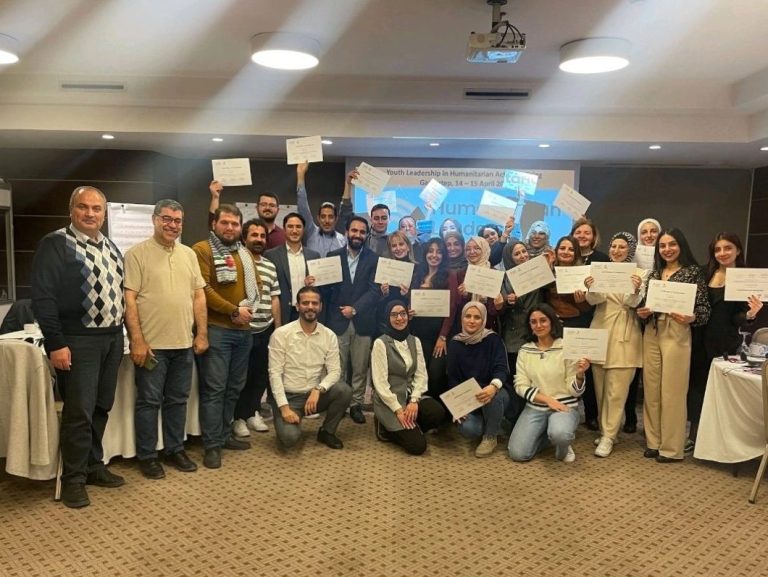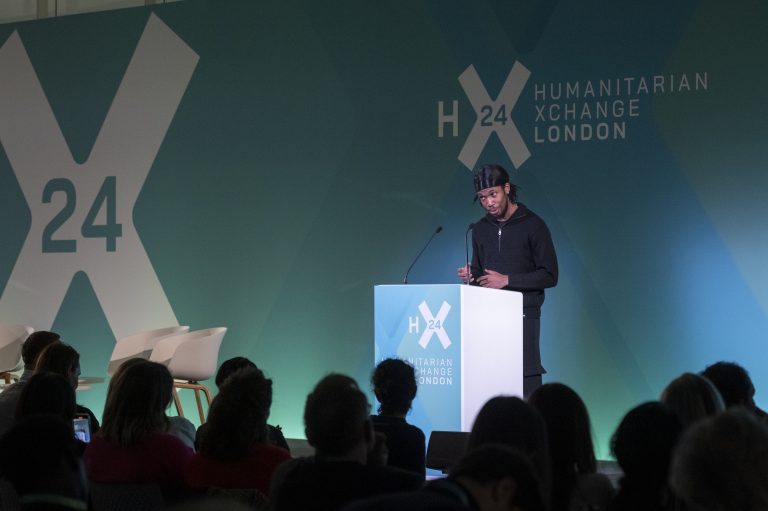The HLA team in West and Central Africa (WCA) held two key Humanitarian Operations Programme trainings in Maradi, Niger and Bassikounou, Mauritania in June and July.
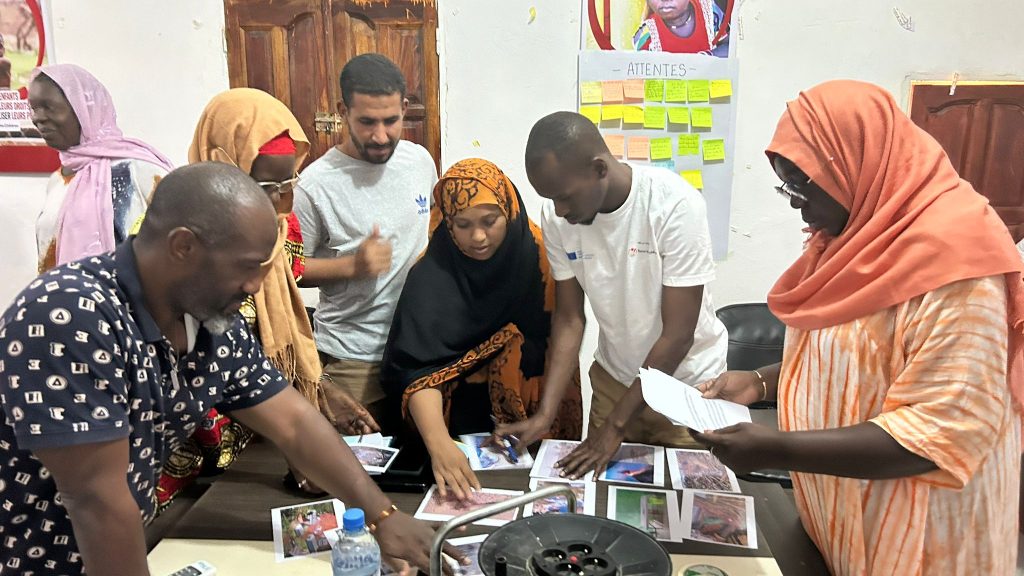
Hassan Amadou Roufai Sani, Senior Humanitarian Program Manager, Save the Children Niger who helped organise the training in Niger said:
“The training has been for a capital importance for our country office since it has allowed to 29 Emergency Response Team (ERT) members coming from different field offices across the country to improve their knowledge and skills in humanitarian response settings.”
Led by the HLA team in WCA, Amadou Sidibé, Learning Specialist and Mireia Gil, HLA Lead (acting), the team responded to a request by the Save the Children International country offices to help strengthen the capacity of their field teams.
The objective of the trainings in Niger and Mauritania were the same – to reinforce the capacities of the field teams. Both country offices have experienced the effects of changes in personnel and challenges in the field including more emergencies and the increasing need to respond more efficiently.
Amadou said: “The HOP training courses in Niger and Mauritania were an excellent initiative because they were organised directly in the field with front-line staff. Based on the needs of the country office and the context, these training courses were designed using a hybrid model (online and face-to-face) combined with a training needs assessment.”
“This enabled us to adapt the content and methodology of the training to the participants, considering the participants’ individual level as well as the specific challenges in the countries.”
The typically 5-day training was extended to 6 days to accommodate 2 and a half days of theoretical sessions and 3 and a half days of simulation; all covering topics including Humanitarian Principles, Conflict Sensitivity, Gender, Accountability, Safeguarding, the Humanitarian Project Cycle, Well-being and more.
These core HOP essentials were contextualised, adapted and improved to meet the needs of a total of 48 colleagues in Niger (29) and Mauritania (19).
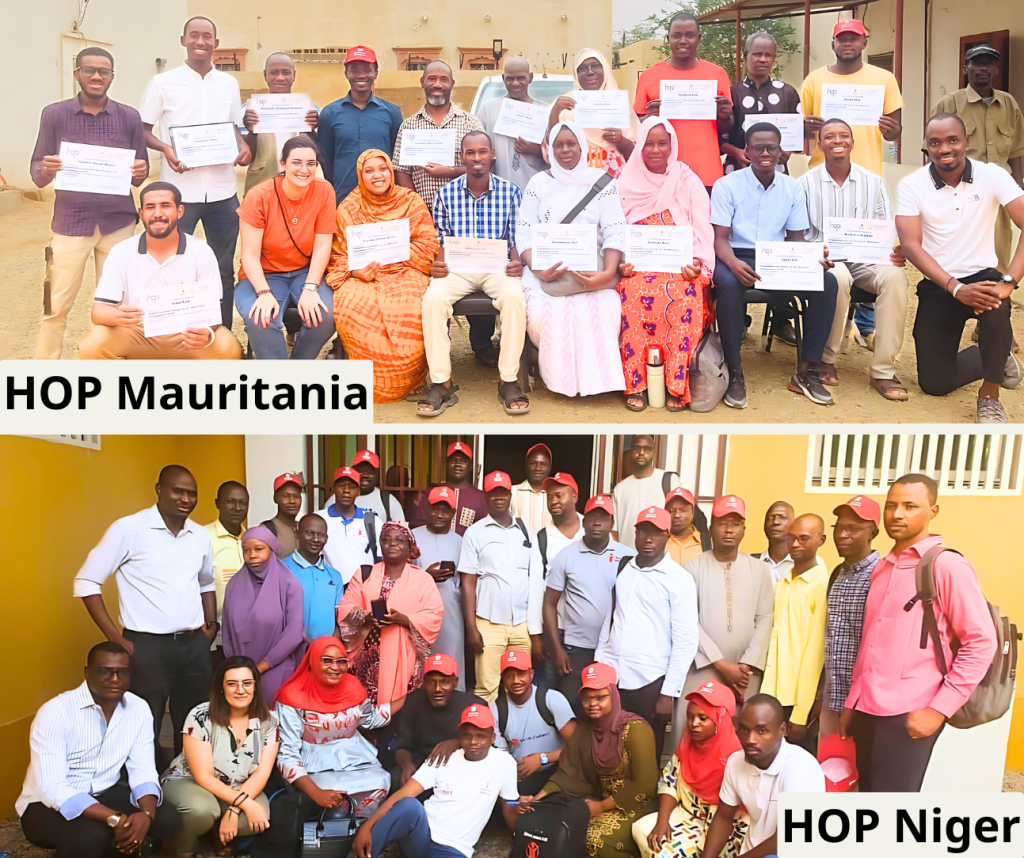
Dodo Adamou, Humanitarian Coordinator, Save the Children Mauritania participated in the training in Bassikounou; he shared that:
“The training went very well. The trainees, who had varying levels of experience, appreciated the pedagogical approach and the discovery of new themes, such as anticipatory action and conflict sensitivity.
“The beginner profiles were able to gain a better understanding of Save the Children’s procedures. They were also impressed by the simulation, and by the density of the topics covered, in line with the theoretical learning sessions given during the HOP and during the e-learning sessions.”
As a result of the HOP training, there are improved relations across country office humanitarian teams; 4 Emergency Response Teams (ERT) across Niger and 1 ERT in Mauritania have also strengthened their specific operational capacities.
In a few weeks after the training, Hassan reported that “as an outcome of this training, we have seen a great improvement in the planning and delivery of emergency responses led by the trained team members within our various field offices.”
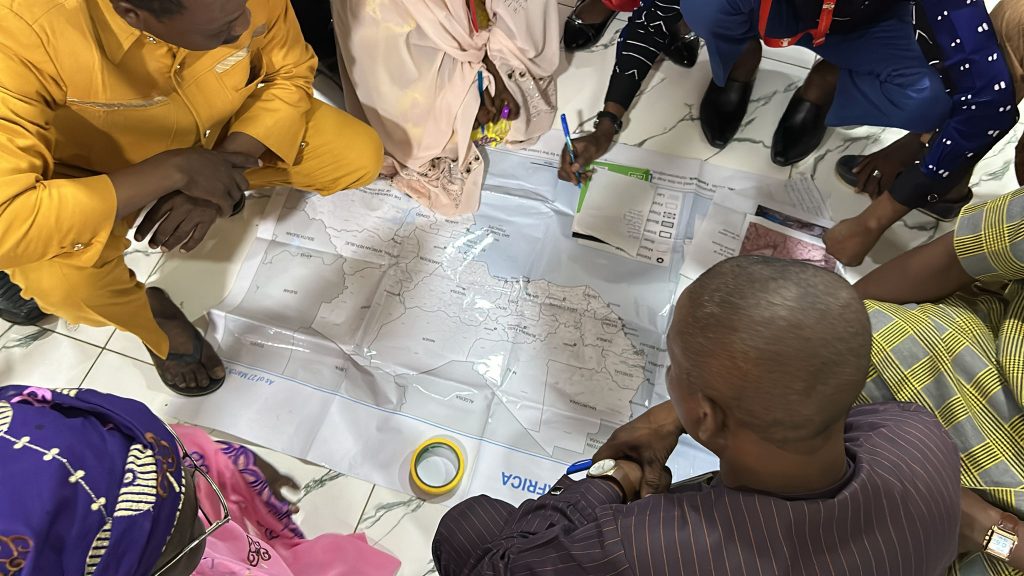
The newly trained teams are now developing a post-training guide to summarise and highlight aspects of the training most relevant for their larger and sub-teams. This will help to increase self-training tools.
Additionally field teams were inspired to create a collaboration space that allows sharing and exchange of best practice in humanitarian and emergency response.

